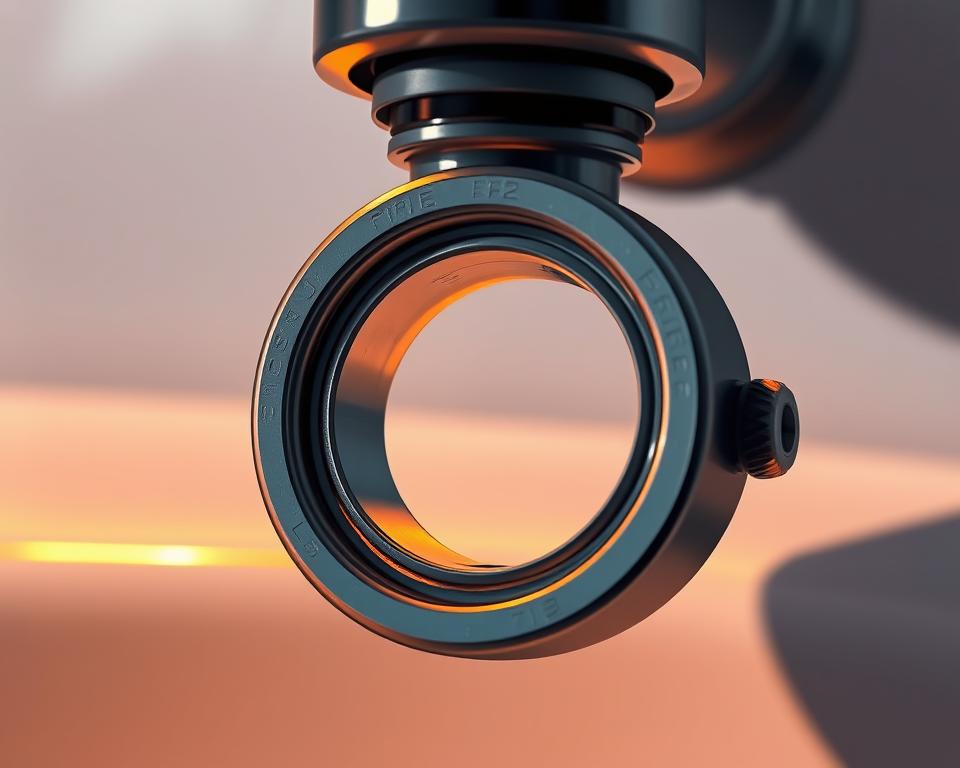DIY Guide: Faucet Valve Seat Replacement Tips
Did you know a leaky fixture can waste over 3,000 gallons of water a year? That’s enough to fill a small swimming pool! Fixing worn-out components saves money and conserves water—no plumbing experience needed.
Our step-by-step guide keeps it straightforward. Grab supplies from Installation Parts Supply and end leaks in no time. Avoid expensive service calls and live leak-free with faucet seat replacement.
Adhere to these instructions for an easy replacement. Premium supplies guarantee longevity and empower your next repair.
Summary Highlights
- Leaky valves hike bills—fast fixes go a long way.
- DIY repairs save money compared to hiring a professional.
- High-quality parts from trusted suppliers improve durability.
- Basic tools and clear guidance suit any skill level.
- Routine care prolongs fixture lifespan.

The Importance of Replacing Faucet Valve Seats
A tiny leak feels minor—until it causes major issues. Damaged valve seats leak water, boost bills, and risk fixture damage. Addressing leaks promptly prevents expense and disruption.
Detecting a Worn Valve Seat
Look out for:
- Water drips despite a snug handle.
- Inconsistent flow, like spurts or weak pressure.
- Rust or pits on the valve seat area.
Kitchen drips hinder cooking and leave unsightly marks. Timely action prevents bigger headaches.
The Mechanics of Valve Seat Wear
Limescale and friction gradually erode metal parts. Tiny gaps form and water starts seeping out. Unchecked wear on the valve seat may wreck the faucet.
Rely on Installation Parts Supply for quality replacements. Their parts resist buildup, ensuring a tight seal and lasting performance.
Quick leaking faucet repair protects your home and conserves water—up to 3,000 gallons yearly!
Required Tools & Parts
Quality tools and parts ensure a leak-free fix that lasts. Whether you’re tackling a minor drip or a stubborn leak, the right supplies save time and hassle. Collect the following tools and parts:
Must-Have Tools for Valve Seat Replacement
Essential plumbing tools:
- Adjustable wrench: Loosens nuts and bolts.
- Valve-seat wrench for seat extraction.
- Screwdriver set—to remove handles and screws.
- Pliers: Grips small components securely.
Use a seat-grinding bit to clean badly corroded seats. A faucet repair kit with seats, washers, and O-rings covers most replacements.
Buying Parts
Don’t settle for disposable components. Count on Installation Parts Supply for reliable nationwide shipping. Their repair kits bundle all necessary parts plus guidance.
| Essential Tools | Extras |
|---|---|
| Adjustable wrench | Valve-seat grinder |
| Valve-seat remover | Heat source |
| Repair kit | Tubing cutter |
Spending on quality gear is worth it. Your fixtures will stay leak-free longer.
Step-by-Step Faucet Valve Seat Replacement
End water waste with this easy DIY repair anyone can do. Whether you’re a beginner or a seasoned DIYer, these steps ensure a smooth process. Gather your tools and let’s get started.
Step 1: Turn Off Water & Disassemble
Find and close the shutoff valves beneath your sink. Turn the faucet on to drain any water left. Remove the handle screws, then back out the retaining nut with your wrench.
Tip: Tag components with labels so you know where they go. Installation Parts Supply offers anti-rust nuts for long-term durability.
Step 2: Take Out Old Seat
Examine the parts for rust and scale. Fit a seat wrench into the worn component and turn counterclockwise. If stuck, spray penetrating oil and let it soak for 10 minutes.
| Typical Issues | Fixes |
|---|---|
| Seized seat | Use heat (carefully) or a locking plier |
| Stripped threads | Swap out the housing assembly |
Step 3: Install the New Valve Seat
Brush off debris from the threads. Thread in the new seat from Installation Parts Supply and start by hand. Tighten carefully to avoid stripping.
Step 4: Put It Back Together & Test
Reattach components in reverse order. Turn the water back on slowly. Watch for any leaks—snug fittings a bit more if needed. A successful DIY faucet repair saves water and money!
In Closing
Your household benefits from dependable, long-lasting fixtures. Early repairs cut waste, reduce bills, and avoid bigger fixes.
With this guide’s clear steps, anyone can tackle the job confidently. Count on Installation Parts Supply for parts that withstand wear.
Add these faucet maintenance tips to your routine: inspect washers annually and tighten loose handles promptly. A bit of upkeep today prevents major overhauls tomorrow.
Ready to put your skills to work? Grab your tools, follow the steps, and enjoy a drip-free home today!


